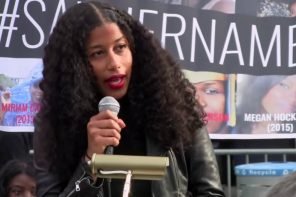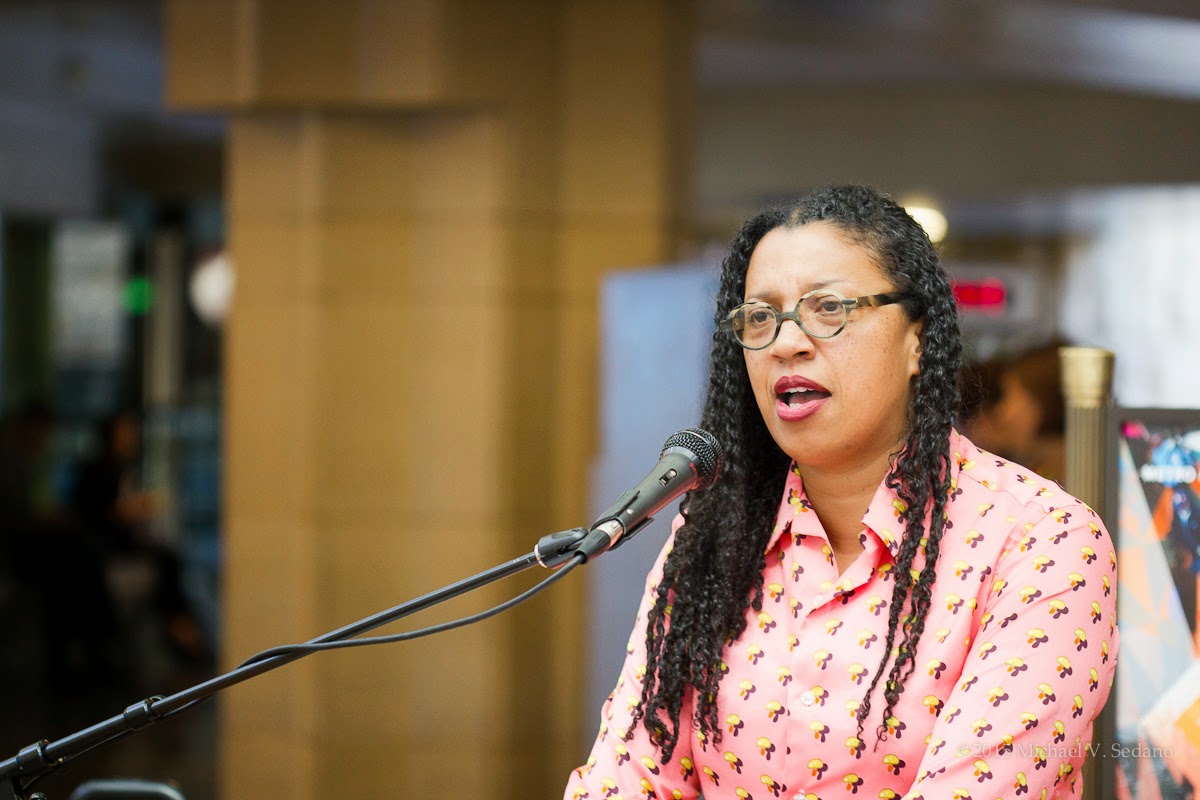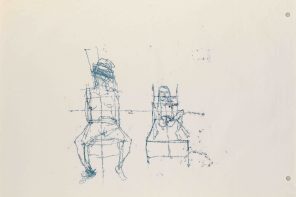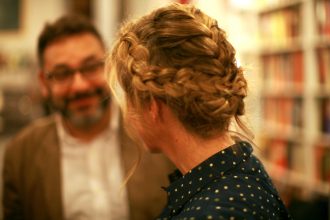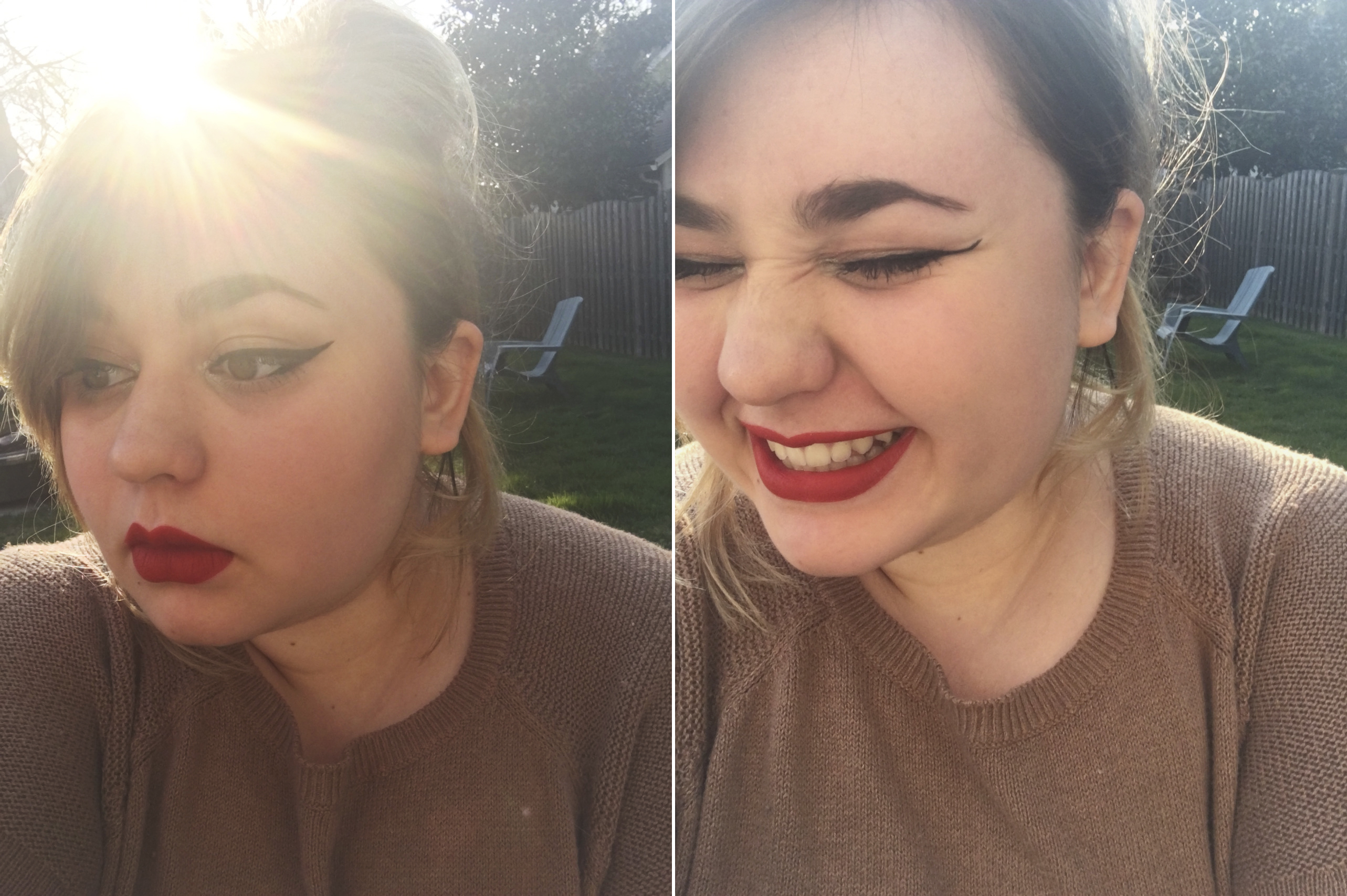
Los propios seguidores de Caitlyn la describen como un rayo de sol, una tormenta de verano, un ser etéreo y púramente mágico.
No tiene pudor ni miedo en compartir su día a día, convirtiendo su página de Tumblr alonesomes en un hogar acogedor para unos, un bálsamo para muchos otros, pero especialmente en una plataforma para dar a conocer su trabajo y su vitalista perspectiva en la vida.
Es precisamente en este medio en el que empezó a darse a conocer y ganar popularidad, hasta el punto de plagar la red con sus citas e imágenes que las contienen, algo que ni ella misma esperaba. El porqué de su éxito, sin embargo, es evidente; Caitlyn es una mente brillante y un corazón que vibra a revoluciones ensordecedoras.
Habiendo entrado apenas en la veintena, ya ha publicado What we buried (2014), su primer poemario, y editado junto a Amanda Oaks Literary Sexts (2014), ambos en Words Dance Publishing, y estudia periodismo y cine en Nueva Jersey, con la intención de convertirse, algún día, en guionista de cine.
Con tintes feministas pero sin hacer de ello bandera de su trabajo, Caitlyn escribe especialmente con intensidad sobre el amor, su tema favorito: la fuerza y capacidad de amar del ser humano, del género o condición que sea, y las piezas que quedan cuando éste se ha terminado.
Es en esa capacidad de superación tras el dolor, de aceptación y curación, que remarca con cada uno de sus versos y que hacen de su poesía algo tan adictivo. Es tan fácil sentir en las propias entrañas aquello de lo que está hablando, que una palabra tras otra dejan en la boca del lector el regusto de un nombre que pensaba ya olvidado.
Podríamos pensar en sus poemas como un relato de sus experiencias o ensoñaciones, pero la realidad es que son casi una extensión de su propio ser, que prolonga en la red: dialogando con sus lectores y aconsejándolos como una suerte de Afrodita literaria, y compartiendo las piezas que forman un universo plagado de paisajes y Monets y citas literarias de Henry Miller o T.S. Elliot.
Caitlyn es un maravilloso puzzle de múltiples piezas, pero que mientras se va construyendo deja entrever la imagen que formará: un lugar donde el amor duele pero deja huella, aunque se supera; un lugar donde todos los géneros y cuerpos tienen cabida. Un lugar en el que los sentimientos no tienen por qué ser ocultados. Pero, especialmente, un lugar donde la mujer tiene su sitio.
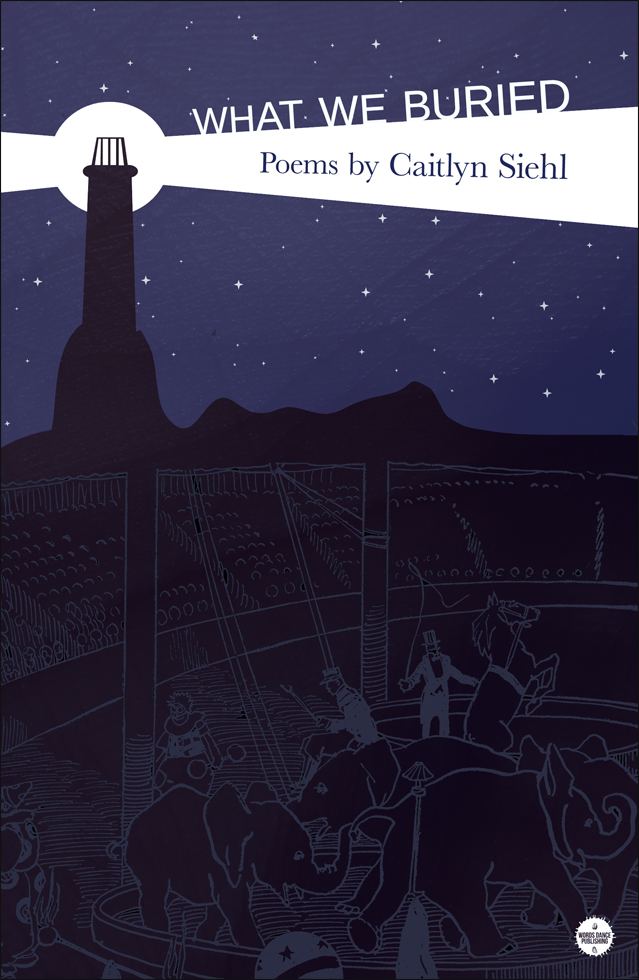
STRETCH MARKS
I learned how to be big by accident.
I was 10 and I didn’t look like the other girls.
I was 10 and it was too late to turn back.
The kids had already learned how to
wield the knives under their tongues
so I kept quiet when they spat.
I stayed soft and I forgave.
The first few popped up on my inner thight
when I turned fourteen, splaying out like
white trees on smooth skin.
When I told my friends, they did not look proud.
I learned how to be big by accident.
A patch reached across my hips when I turned 16 and
the white rivers opened up into a delta on my calves.
I was a landscape.
I was art.
I kept growing and they kept coming like refugees
from some falling country.
«Give me your tired, your poor.»
I am a city of sounds.
I will keep you safe.
I know I am supposed to feel ugly.
They all tell me that no woman
should look so well-traveled,
but they do not know.
I am earth. I am sun and skies.
I am the high road, the low road.
I am every poem about skin.
I am a world that cannot be explored in one day.
I am not a place for cowards.
ESTRÍAS
Aprendí a cómo ser mayor por accidente.
Tenía 10 años y no me veía como las otras chicas.
Tenía 10 años y era demasiado tarde para volver atrás.
Los niños ya habían aprendido a
empuñar los cuchillos bajo sus lenguas
así que me callé cuando escupieron.
Me mantuve suave y perdoné.
Las primeras aparecieron en la parte interna de mi muslo
cuando cumplí catorce, extendiéndose como
blancos árboles sobre suave piel.
Cuando se lo dije a mis amigos, no parecían estar orgullosos.
Aprendí a cómo ser mayor por accidente.
Una mancha se extendió por mis caderas cuando cumplí los 16 y
los ríos blancos se abrieron hacia un delta en mis piernas.
Yo era un paisaje.
Yo era arte.
Seguí creciendo y siguieron viniendo como refugiados
de algún país que está cayendo.
«Dame a tus cansados, tus pobres.»
Soy una ciudad de sonidos.
Te mantendré a salvo.
Sé que se supone que debería sentirme fea.
Todos me dicen que ninguna mujer
debe parecer tan experimentada,
pero ellos no lo saben.
Yo soy la tierra. Soy el sol y los cielos.
Soy el camino alto, el camino bajo.
Soy todos los poemas sobre la piel.
Soy un mundo que no puede ser explorado en un día.
No soy un lugar para cobardes.
*
DO NOT FALL IN LOVE WITH PEOPLE LIKE ME
Do not fall in love with people like me.
People like me will love you so hard
that you turn into stone,
into a statue where people come to marvel at how long
it must have taken to carve that faraway look into your eyes.
Do not fall in love with people like me.
We will take you to museums and parks and monuments
and kiss you in every beautiful place
so that you can never go back to them
without tasting us like blood in your mouth.
Do not come any closer.
People like me are bombs.
When our time is up, we will splatter loss all over your walls
in angry colors that make you wish your doorway
never learned our name.
Do not fall in love with people like me.
With the lonely ones.
We will forget our own names if it means learning yours.
We will make you think that hurricanes are gentle,
that pain is a gift.
You will get lost in the desperation, in the longing
for something that is always reaching,
but never able to hold.
Do not fall in love with people like me.
We will destroy your apartment.
We will throw apologies at you that shatter on the floor
and cut your feet.
We will never learn how to be soft.
We will leave.
We always do.
NO TE ENAMORES DE PERSONAS COMO YO
No te enamores de personas como yo.
Las personas como yo te querrán tanto
que te convertirán en piedra,
en una estatua a la que la gente irá a maravillarse sobre cuánto
habrá llevado tallar esa mirada lejana en tus ojos.
No te enamores de personas como yo.
Te llevaremos a museos y parques y monumentos
y te besaremos en cada hermoso lugar
para que nunca puedas volver a ellos
sin saborearnos como sangre en la boca.
No te acerques más.
Las personas como yo somos bombas.
Cuando se acabe el tiempo, salpicaremos todas tus paredes
de colores furiosos que hacen que desees que tu puerta nunca aprendiera nuestro nombre.
No te enamores de personas como yo.
De las solitarias.
Olvidaremos nuestros propios nombres si significa aprender el tuyo.
Te haremos creer que los huracanes son apacibles,
que el dolor es un regalo.
Te perderás en la desesperación, en el anhelo
de algo que estás siempre alcanzando,
pero no eres capaz de mantener.
No te enamores de personas como yo.
Destruiremos tu apartamento.
Te lanzaremos disculpas que se romperán en el suelo y cortarán tus pies.
Nunca aprenderemos cómo ser suaves.
Nos iremos.
Siempre lo hacemos.
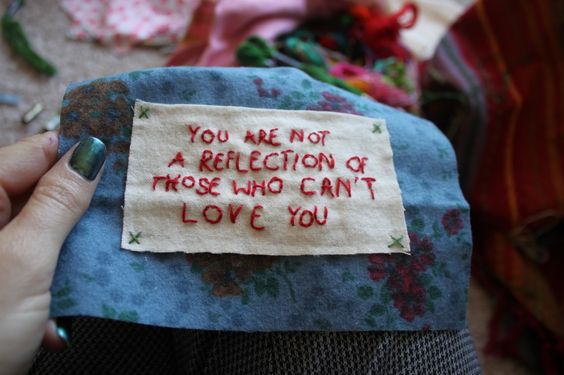
DESPERATE
We kissed because we were starving for it.
We were so desperate with each other
that every time we went out, at least one person
would pull me to the side and ask if one of us
was dying. The answer, of course, was always yes.
We didn’t even know what to do with our hands.
Sometimes, they’d wind up on my mouth,
over your entire face, trailing up and down
your spine, nails like rakes over angry red skin.
It couldn’t have been pretty, and God,
if you were watching, you’re a pervert,
but I’m also sorry. We loved like we were
trying to make up for lost time.
Every touch an apology, an
«I’m sorry I haven’t been with you every day since elementary school.»
There was no way it wouldn’t end badly,
so we stayed away from fire, because we knew
what it could do to beautiful things.
We spent an hour every day in separate parts
of the apartment, relearning distance, trying
to remember how to measure in feet and inches
instead of eyelashes and arms.
I could feel you in the kitchen.
I could feel how tense your muscles were,
how tightly your jaw was clenched.
Every length of you was humming without me.
I knew you like the back of your hand.
Every vein, every freckle. That scar in-between
your middle and ring finger from when you
fell down during a game of kickball.
It was all urgency, all fire-engine red.
We saw the smoke coming from a mile away
and kissed the treetops before they coughed
and writhed under the flames.
It was a beautiful forest. Too beautiful to stay.
I will never forget the place that I loved you,
even if it is raining ash. I hear some of the trees
are still alive on the inside.
DESESPERADO
Nos besamos porque estábamos hambrientos de ello.
Estábamos tan desesperados por el otro
que cada vez que salíamos, al menos una persona
me apartaba a un lado y me preguntaba si uno de nosotros
se estaba muriendo. La respuesta, por supuesto, siempre era sí.
Ni siquiera sabíamos qué hacer con nuestras manos.
A veces, iban a parar a mi boca,
por toda tu cara, arrastrándose arriba y abajo
por tu espina dorsal, uñas como rastrillos sobre piel roja y enfadada.
No pudo haber sido bonito, y Dios,
si estabas mirando, eres un pervertido,
pero también lo siento. Nos queríamos como si estuviéramos
tratando de compensar el tiempo perdido.
Cada tacto una disculpa, un
«Lo siento por no haber estado contigo cada día desde la escuela primaria.»
No había ningún modo en el que no fuera a terminar mal
así que nos mantuvimos alejados del fuego, porque sabíamos
lo que podría hacer a las cosas hermosas.
Pasábamos una hora cada día en lugares separados
del apartamento, reaprendiendo la distancia, intentando
recordar cómo medir en pies y pulgadas
en lugar de pestañas y brazos.
Podía sentirte en la cocina.
Podía sentir lo tensos que estaban tus músculos,
lo fuerte que apretabas tu mandíbula.
Cada tramo de ti rezumbaba sin mí.
Sabía que te gusta el dorso de tu mano.
Cada vena, cada peca. Esa cicatriz entre
tu dedo corazón y anular de cuando
te caíste durante un partido de kickball.
Era todo urgencia, todo rojo cual coche de bomberos.
Vimos venir el humo desde una milla de distancia
y besamos las copas de los árboles antes de que tosieran
y se retorcieran bajo las llamas.
Era un bosque precioso. Demasiado precioso para quedarse.
Nunca olvidaré el lugar en el que te quise,
aunque estén lloviendo cenizas. He oído que algunos de los árboles
siguen vivos en su interior.
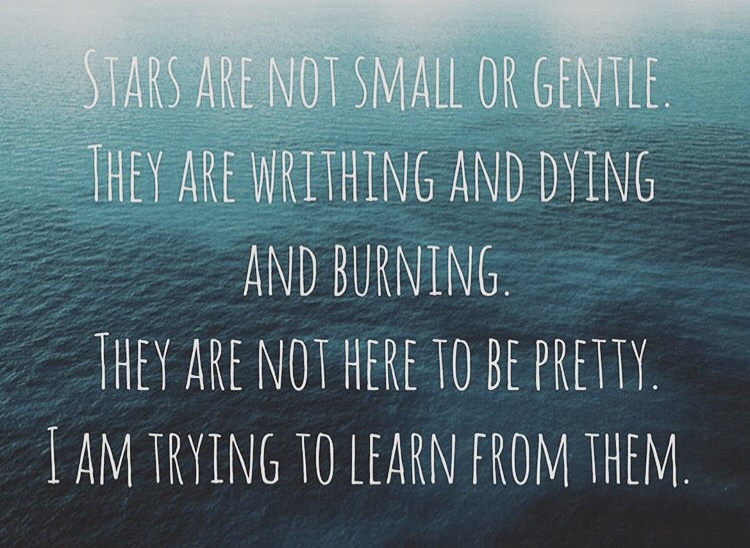
THE MURAL
You are the mistakes I made in college.
You are the eighth shot of Southern Comfort
and the walk back to my dorm that I don’t remember.
If I’m being honest, I miss being that reckless.
Your neck is a mural of lips that belonged to women
who never loved you and I refuse to be one of them.
You are a hangover.
You are breakfast at 3 in the afternoon.
You make me sick and I love you.
I will not kiss your neck with imperfect courage.
I will cover their lips with my own
and I will never be embarassed
about throwing up in my own hair
that night I called you and told you
that you were the worst miracle I’d ever known,
because I meant terrifying.
I meant perfect.
I meant please don’t leave,
I’m trying to make this a good thing,
and you knew.
You knew.
EL MURAL
Eres los errores que cometí en la universidad.
Eres el octavo chupito de Southern Comfort
y el camino de vuelta a mi dormitorio que no recuerdo.
Si soy sincera, echo de menos ser tan imprudente.
Tu cuello es un mural de labios que pertenecieron a mujeres
que nunca te quisieron y me niego a ser una de ellas.
Eres una resaca.
Eres el desayuno a las 3 de la tarde.
Me pones enferma y te quiero.
No besaré tu cuello con valor imperfecto.
Cubriré sus labios con los míos
y nunca me avergonzaré
de haber vomitado en mi propio pelo
aquella noche que te llamé y te dije
que eras el peor milagro que había conocido nunca,
porque quería decir aterrador.
Quería decir perfecto.
Quería decir por favor no te vayas,
estoy intentando hacer de esto algo bueno,
y lo sabías.
Lo sabías.
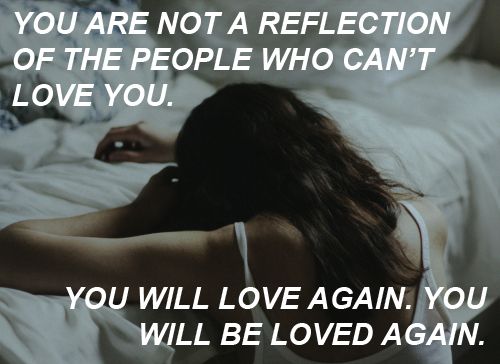
THREE QUESTIONS
My mother tells me that, when I meet someone I like,
I have to ask them three questions:
- What are you afraid of?
- Do you like dogs?
- What do you do when it rains?
Of those three, she says the first one is the most important.
«They gotta be scared of something, baby. Everybody is. If they aren’t afraid of anything, then they don’t believe in anything, either.»
I met you on a Sunday, right after church.
One look and my heart fell into my stomach
like a trap door.
On our second date, I asked you what you were afraid of.
«Spiders, mostly. Being alone. Little children, like,
the ones who just learned how to push a kid over on the playground.
Oh and space. Holy shit, space.»
I asked you if you liked dogs.
«I have three.»
I asked you what you do when it rains.
«Sleep, mostly. Sometimes I sit at the window and watch the rain droplets
race. I make a shelter out of plastic in my backyard for all the stray animals;
Leave them food and a place to sleep.»
He smiled like he knew, like his mom told him the same thing.
«How about you?»
Me?
I’m scared of everything.
Of the hole in the o-zone layer, of the lady next door
who never smiles at her dog, and especially of all the secrets
the government must be breaking its back trying to keep from us.
I love dogs so much, you have no idea.
I sleep when it rains.
I want to tell everyone I love them.
I want to find every stray animal and bring them home.
I want to wake up in your hair and make you shitty coffee
and kiss your neck and draw silly stick figures of us.
I never want to ask anyone else these questions ever again.
TRES PREGUNTAS
Mi madre me dice que, cuando conozca a alguien que me gusta, tengo que hacerle tres preguntas:
- ¿A qué tienes miedo?
- ¿Te gustan los perros?
- ¿Qué haces cuando llueve?
De esas tres, dice que la primera es la más importante.
«Tienen que tener miedo a algo, cariño. Todo el mundo lo tiene. Si no tienen miedo a nada, entonces no creen en nada, tampoco.»
Te conocí un domingo, justo después de misa.
Una mirada y mi corazón cayó en mi estómago
como una trampilla.
En nuestra segunda cita, te pregunté a qué temías.
«Arañas, sobre todo. Estar solo. Niños pequeños, como
los que acaban de aprender a empujar a otro niño en el parque.
Oh y el espacio. Mierda, el espacio.»
Te pregunté si te gustaban los perros.
«Tengo tres.»
Te pregunté qué haces cuando llueve.
«Dormir, generalmente. A veces me siento en la ventana y veo las gotas de lluvia
correr. Hago un refugio de plástico en mi patio trasero para todos los animales callejeros;
Les dejo comida y un lugar donde dormir.»
Sonrió como si lo supiera, como si su madre le hubiera dicho lo mismo.
«¿Y tu?»
¿Yo?
Tengo miedo a todo.
Al agujero de la capa de ozono, a la mujer que vive al lado que nunca sonríe a su perro, y especialmente a todos los secretos por los que el gobierno debe estar partiéndose la espalda para que no sepamos.
Me gustan muchísimo los perros, no te imaginas.
Duermo cuando llueve.
Quiero decir a todo el mundo que los quiero.
Quiero encontrar a cada animal callejero y traerlo a casa.
Quiero despertarme en tu pelo y hacerte un café asqueroso
y besar tu cuello y dibujar monigotes de palo de nosotros.
No quiero volver a preguntar nunca más estas preguntas a nadie más.
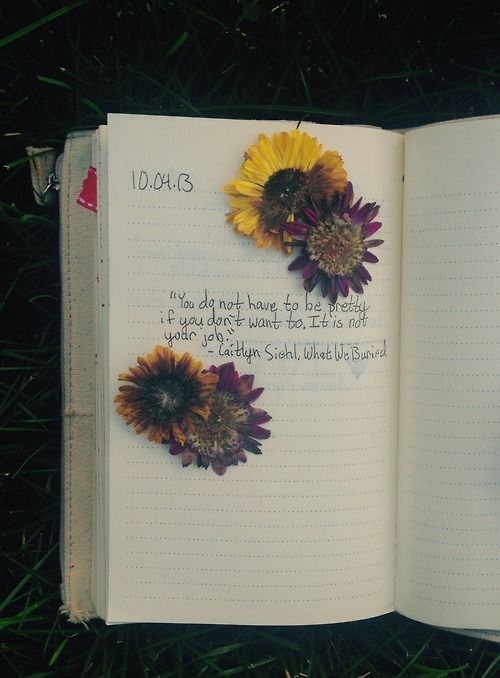
SURVIVAL
This is how we survive:
We survive.
I have learned that there aren’t tricks
for breaking the fingers
of the things that choke us in our sleep.
There aren’t remedies that take away
heartache without the word «time»
written sympathetically across our therapist’s face.
We survive by surviving.
We do it unconsciously,
the way our bodies remember to
breathe, even when we’re asleep.
The first step is always deciding
to take the first step.
The second step is miserable
and we usually trip down the stairs,
then wait months before climbing back
and starting again.
What I’m trying to say is, be patient.
What I’m trying to say is, I don’t have the anwsers.
My bones tell me to sing when I’m lonely, so I do.
I sing and I don’t think of him or his hands.
On days when everything feels
like a eulogy, walk slowly, and don’t wear black.
Don’t let this be a funeral.
Teach yourself to navigate the wound
and take note of all the places
you see along the way, like the park bench
with your initials carved into it,
or the weeping willow that is tired of crying.
There will be months that try to swallow
you whole, with fangs that pierce your chest
like a bullet. Look for the exit wound.
Look for the Hallelujah chorus
at the other end of your skin.
It has come and gone and now everything
is a symphony.
SUPERVIVENCIA
Así es como sobrevivimos:
Sobrevivimos.
He aprendido que no hay trucos
para romper los dedos
de las cosas que nos ahogan mientras dormimos.
No hay remedios que quiten
el dolor de corazón sin la palabra «tiempo»
escrita simpáticamente en la cara de nuestro terapeuta.
Sobrevivimos sobreviviendo.
Lo hacemos inconscientemente,
del mismo modo que los cuerpos recuerdan
respirar, incluso cuando estamos dormidos.
El primer paso es siempre decidir
tomar el primer paso.
El segundo paso es triste
y solemos caernos por las escaleras,
y esperamos meses antes de volver a subir
y volver a empezar.
Lo que estoy intentando decir es, sé paciente.
Lo que estoy intentando decir es, no tengo las respuestas.
Mis huesos me dicen que cante cuando me siento sola, y lo hago.
Canto y no pienso en él o en sus manos.
Los días que todo parece
una elegía, anda despacio, y no vistas negro.
No dejes que esto sea un funeral.
Enséñate a llevar la herida
y toma nota de todos los lugares
que veas por el camino, como el banco del parque
con vuestras iniciales grabadas en él,
o el sauce llorón que está cansado de llorar.
Habrá meses que intenten tragarte
por completo, con colmillos que desgarren tu pecho
como una bala. Busca la herida de salida.
Busca el estribillo del Aleluya
en el otro extremo de tu piel.
Ha ido y venido y ahora todo
es una sinfonía.
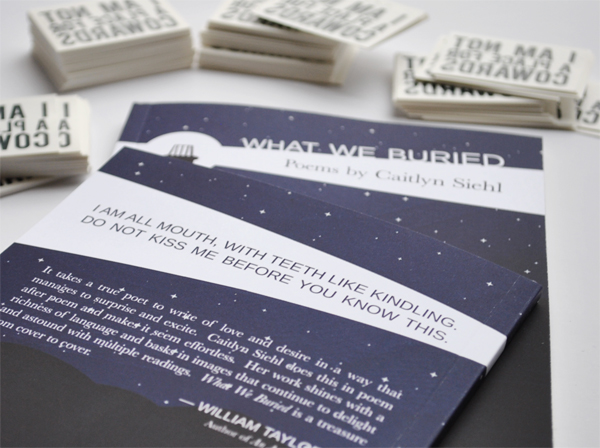
THE FIRST WORD I TEACH MY DAUGHTER
The first word I teach my daugther will be «No.»
She will sing it to me and scream it at me
and I will never tell her to quiet down.
She will say it when I tell her to go to bed,
when I tell her she can’t have any more candy
or watch any mor televisión.
«No» will be my daughter’s favorite word.
Not only will I teach her how to say it,
but I will teach her to repeat it over and over
again until every single atom in her tiny little body hums with it.
If it makes her less soft than other girls,
I will take her to museums and show her
what marble and stone can become.
I will brush her hair and let her wear whatever she wants.
If this makes her a warrior in a field of flowers,
then she will walk without fear of being trampled on.
The first word I teach my daughter will be «No»
and when she grows up in a world that tells her that she can’t walk down the street by herself,
that «No» will be heard.
It will roar and echo down the block
and she will never be told to keep silent.
She will not know the meaning of the word.
LA PRIMERA PALABRA QUE ENSEÑE A MI HIJA
La primera palabra que enseñe a mi hija será «No.»
Me la cantará y me la gritará
y nunca le diré que se calme.
La dirá cuando le diga que se tiene que acostar,
cuando le diga que no puede comer más caramelos
o ver más televisión.
«No» será la palabra favorita de mi hija.
No sólo le enseñaré cómo decirla,
sino cómo repetirla una y otra vez
hasta que cada átomo de su diminuto cuerpo vibre con ella.
Si la hace menos blanda que a las otras chicas,
la llevaré a museos y le enseñaré
en lo que pueden convertirse el mármol y la piedra.
Cepillaré su pelo y le dejaré vestir lo que ella quiera.
Si esto la hace una guerrera en un campo de flores,
andará sin el miedo de ser pisoteada.
La primera palabra que enseñe a mi hija será «No»
y cuando crezca en un mundo que le diga
que no puede andar por una calle sola,
se oirá ese «No».
Rugirá y hará eco por toda la manzana
y nunca más se le dirá que se quede callada.
No conocerá el significado de la palabra.
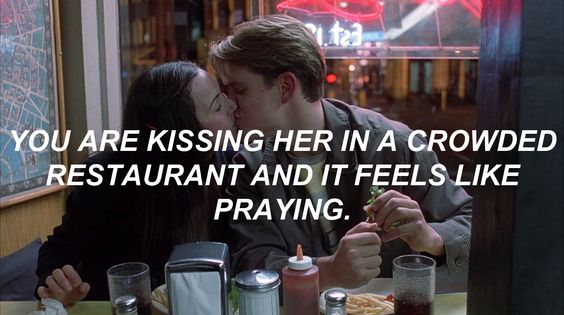
A LETTER TO LOVE
The first poem I wrote that wasn’t about you
was in all capital letters,
like it was trying to compensate
for your absence.
It was about a world far away from this one,
where all of the plants were terrifying
but had healing powers if you had the guts
to touch them.
The first poem I wrote that wasn’t about you
puffed up its throat like a bullfrog
begging to be kissed.
It’s my favorite poem because I hate it so much.
I read it at least once a day and think:
«So this is what I’m capable of without you. Go figure.»
There is a hole in everything
and I find you there, smiling
like you don’t have anywhere else to be.
The first poem I wrote that wasn’t about you
might one day be regarded as a masterpiece.
People will come from all over the world
to run their fingers over the print
and marvel at how empty it is of you.
They will not recognize your scent
clinging silently to their hands.
Because if you walk into a room
and notice what is missing from it,
It’s still there, isn’t it?
The first poem I wrote that wasn’t about you
was still about you.
Damn it.
Always.
UNA CARTA AL AMOR
El primer poema que escribí que no era sobre ti
estaba escrito todo en mayúsculas,
como si intentara compensar
tu ausencia.
Era sobre un mundo muy lejano a este,
donde todas las plantas eran terroríficas
pero tenían poderes curativos si tenías las agallas
de tocarlas.
El primer poema que escribí que no era sobre ti
hinchó su garganta como una rana toro
suplicando ser besada.
Es mi poema favorito porque lo odio muchísimo.
Lo leo por lo menos una vez al día y pienso:
«Así que esto es de lo que soy capaz sin ti. Imagínate.»
Hay un agujero en todo
y te encuentro allí, sonriendo
como si no tuvieras otro lugar donde estar.
El primer poema que escribí que no era sobre ti
podría un día ser considerado una obra maestra.
Vendrá gente de todas partes del mundo
para pasar sus dedos sobre la copia
y maravillarse de lo vacía que está de ti.
No reconocerán tu aroma
pegándose silenciosamente a sus manos.
Porque si entras en una habitación
y te das cuenta de lo que falta en ella,
está todavía allí, ¿verdad?
El primero poema que escribí que no era sobre ti
seguía siendo sobre ti.
Maldita sea.
Siempre.
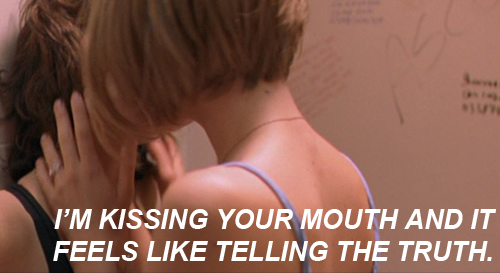
IN THIS STORY
In this story, your mother isn’t the villain.
In this story, you find a way to pick the lock,
to wake up, to climb out of the tower yourself.
In this story, you’re angry.
In this story, you meet a dragon and it is afraid of you.
In this story, you don’t need to be saved.
In this story, your mother raised you to recognize a prison
from a home.
In this story, they don’t fall in love with you before they know you.
In this story, they aren’t better than you.
In this story, you have claws.
In this story, happily ever after has bite marks in it.
In this story, you are free and terrifying.
In this story, you get away.
In this story, you bleed.
In this story, you survive.
EN ESTA HISTORIA
En esta historia, tu madre no es el villano.
En esta historia, encuentras una manera de forzar la cerradura,
para despertar, para salir de la torre por ti misma.
En esta historia, estás enfadada.
En esta historia, encuentras un dragón y te tiene miedo.
En esta historia, no necesitas que te salven.
En esta historia, tu madre te crió para diferenciar una cárcel de un hogar.
En esta historia, no se enamoran de ti sin conocerte.
En esta historia, no son mejores que tu.
En esta historia, tienes garras.
En esta historia, felices para siempre tiene marcas de mordiscos.
En esta historia, eres libre y aterradora.
En esta historia, te escapas.
En esta historia, sangras.
En esta historia, sobrevives.


